Menu

THE BLACKSMITH
KENSHIRO HATONO
- Choosing a selection results in a full page refresh.
















| Blade Length |
135 mm |
| Total Length | 265 mm |
| Steel | SG2(R2) |
| Handle | Wenge |
| Ferrule | Walnut |
| Rockwell | 62 HRC |
| Height Spine to heel | 36 mm |
| Width at Spine | 2.03 mm |
| Weight | 87 g |
| Bevel | Double (50/50) |
The Blacksmith
Kenshiro Hatono is a young and very talented smith who has been working as an apprentice under Katsuyasu Kamo in the Takefu knife village for about 5 years. He is preparing to open his own business and will begin producing knives under his own name in larger quantities next spring (2024) if all goes to plan. We are very excited to have his knives in our shop and look forward to seeing him grow as a smith over the coming years. He is able to work with a variety of steels, can produce many different finishes and along with his excellent edge geometry we are expecting big things from him!
The Knife
This petty has a beautiful layered Damascus blade -- truly a showstopper! Petty knives are great for all the little things: Chopping shallots and garlic, mincing herbs and butchering small proteins. They function perfectly as a line knife as well as they're nimble, don't take up much space but can still accomplish a wide variety of tasks. This also makes them a great option for home cooks looking for something capable they can leave out on the counter all day.
Follow these care recommendations for your Japanese knives to protect the edge and keep them sharp as long as possible:
All products are shipped within 24 hours. We offer same day shipping for products ordered by 12pm. Please allow 4-7 business days for your shipment to arrive with standard shipping. Expedited shipping options are also available at checkout.
We offer free shipping on orders within Canada over $150 CAD and free shipping on orders to the US over $200 USD.
Curbside pick-up is available at both our Hamilton and Etobicoke locations.
To make sure our customers are always satisfied, we offer full refunds on products for 14 days after receiving them. See our full return policy for details.
More questions? Check out our shipping policy, our return policy, or reach out to us directly.
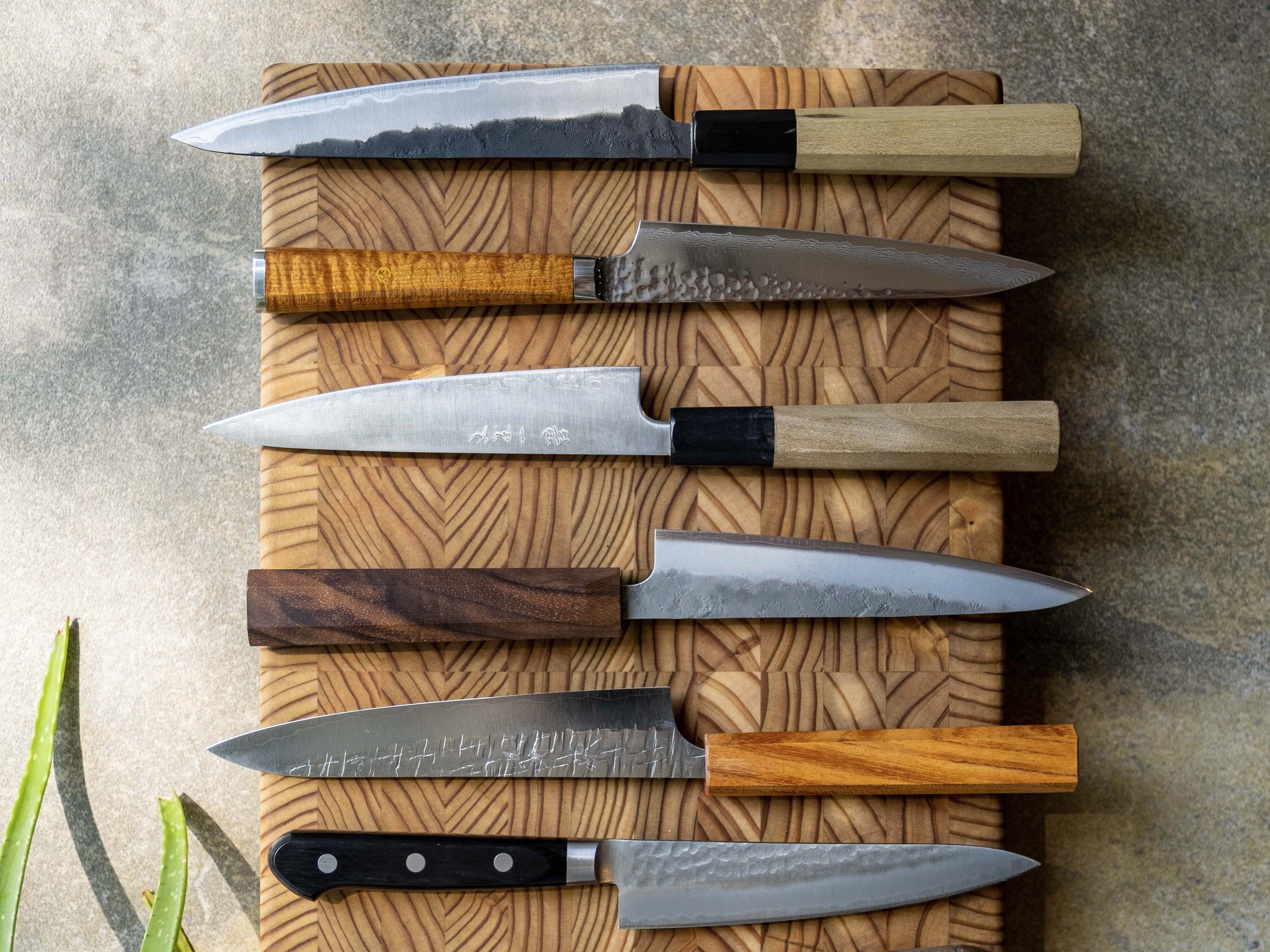
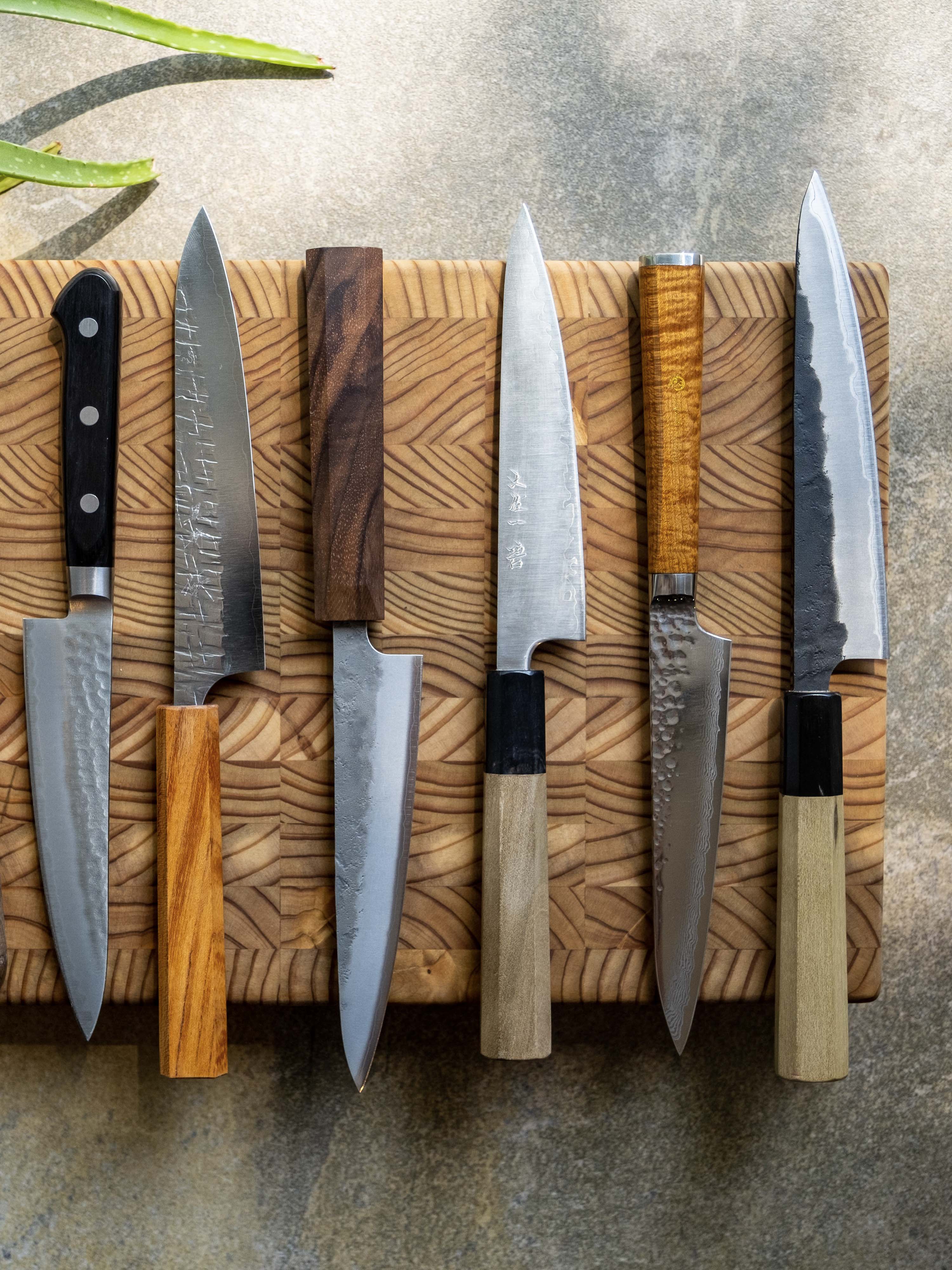
The petty knife is the Japanese equivalent of a utility knife. They typically range in size from 90 mm (3.5 inches) to 150 mm (6 inches) and have a slender, easy-to-control, short blade. They are a perfect accompaniment to a Gyuto, Santoku, or Bunka, as they facilitate smaller tasks. Shorter versions are great for in-hand use. Longer versions are great for fine chopping and managing small ingredients on a cutting board. They also handle butchery tasks with ease.
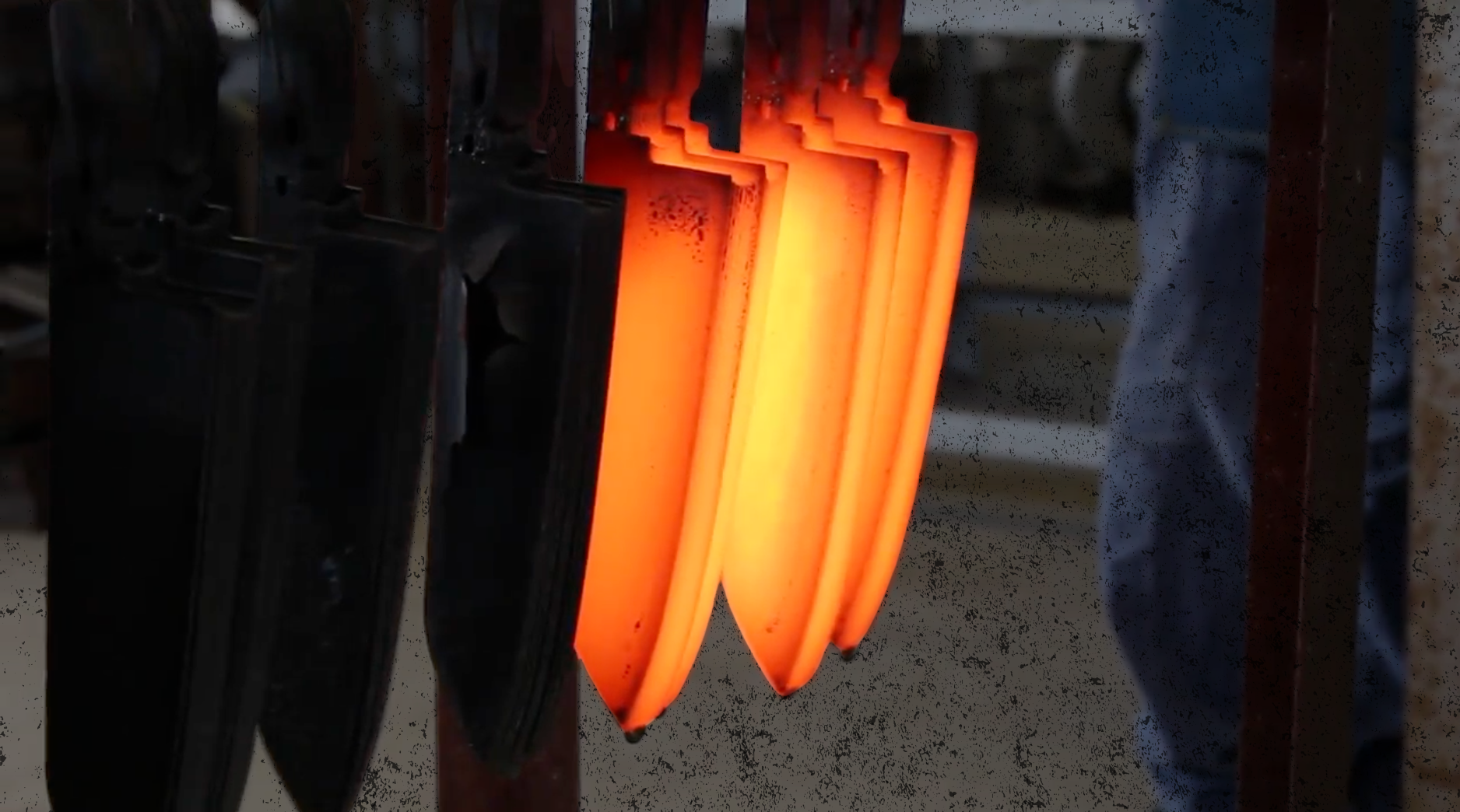
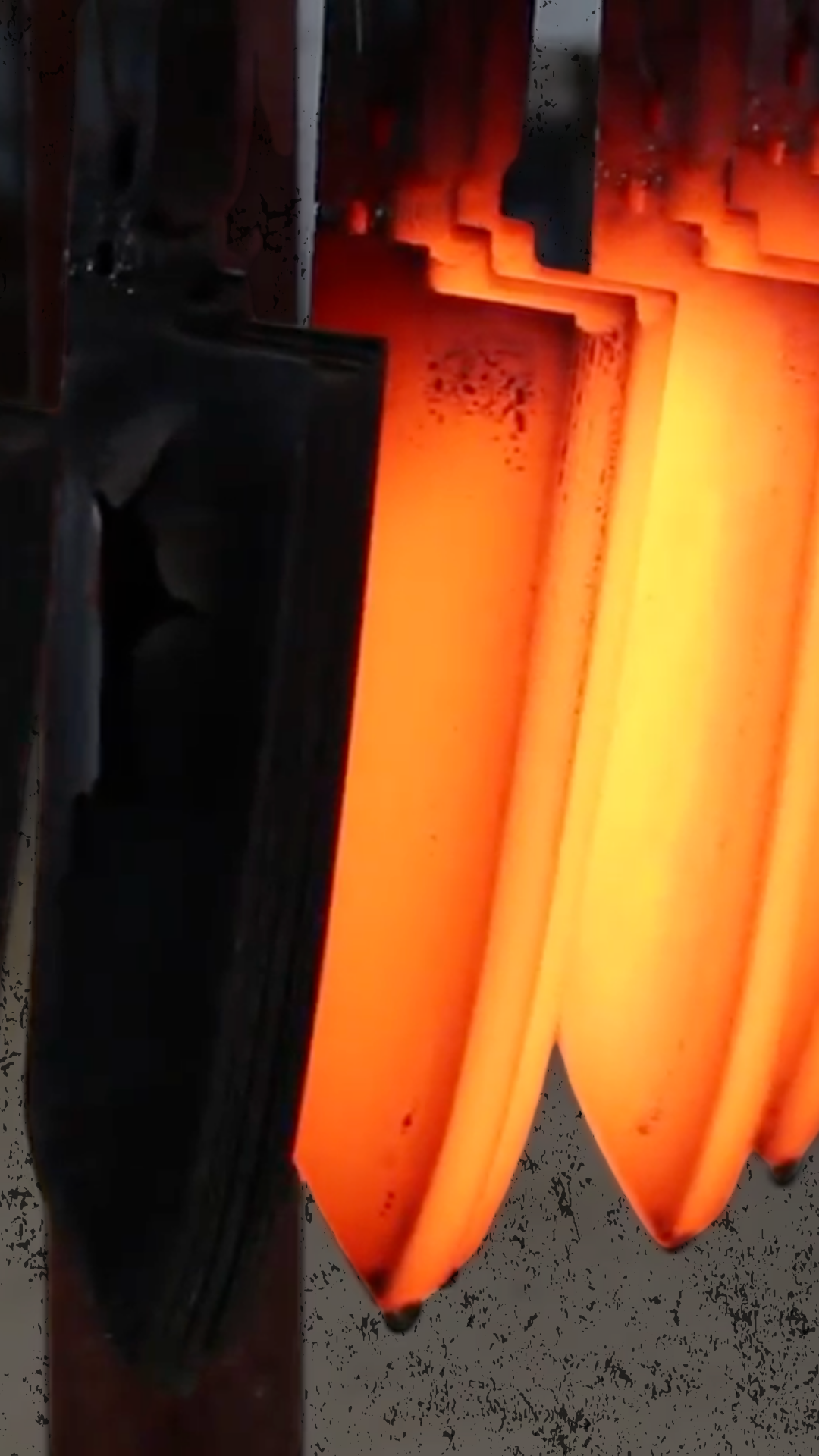
R2 and SG2 are technically different steel types, but are so similar we and many other retailers lump them into the same category. They are what’s known as a “quick powdered” stainless tool steel with incredible edge retention and corrosion resistance. Their one drawback is that their hardness can make them difficult to sharpen. It is not a steel we would recommend for those planning to thin and polish the bevels of their knives unless they are equipped with the proper tools (you will need a low grit stone in the #200 grit range).
Chemical Composition:
C 1.25-1.45% | Cr 14.0-16.0% | Mo 2.3-3.3% | V 1.8-2.2%
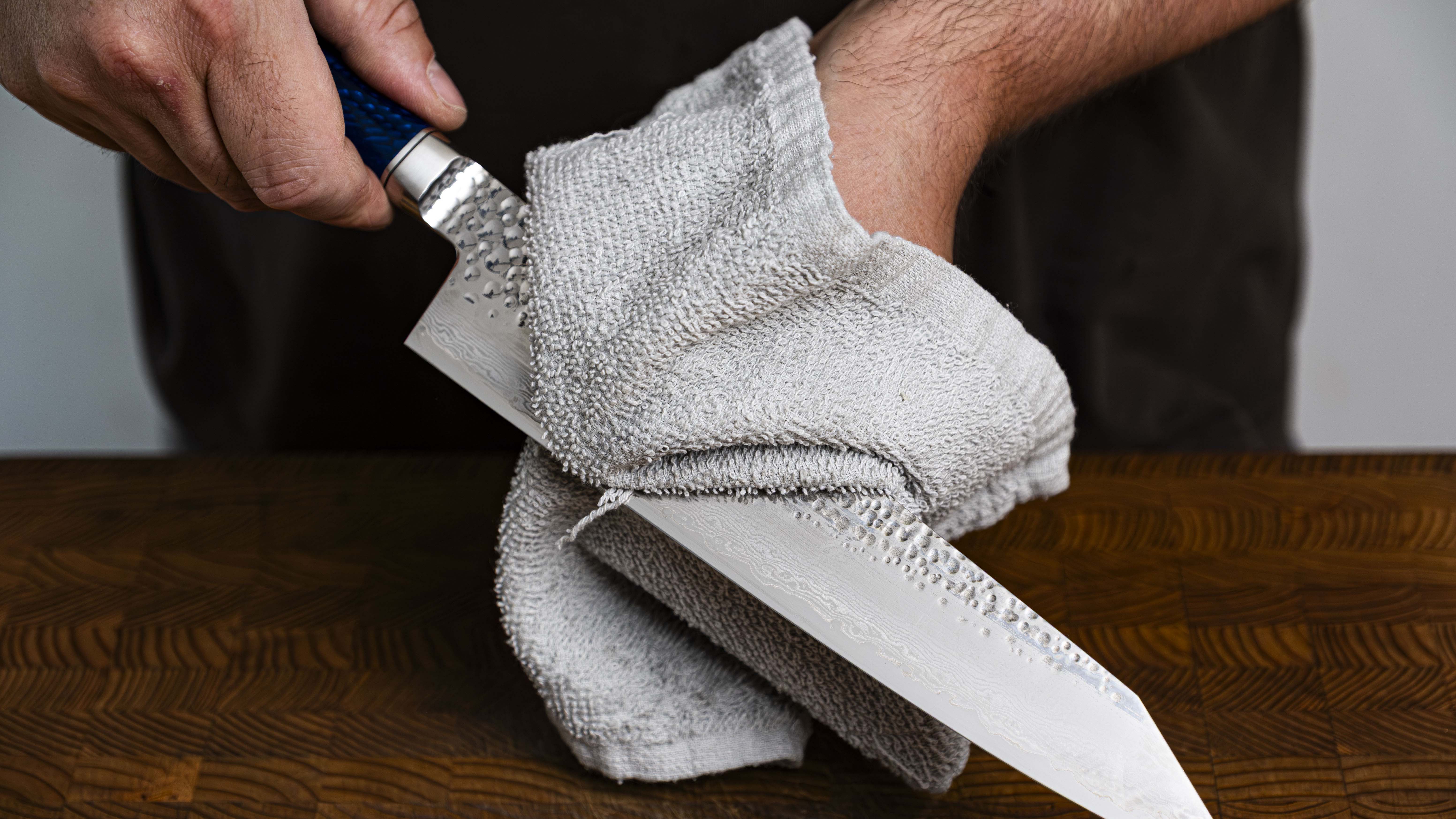
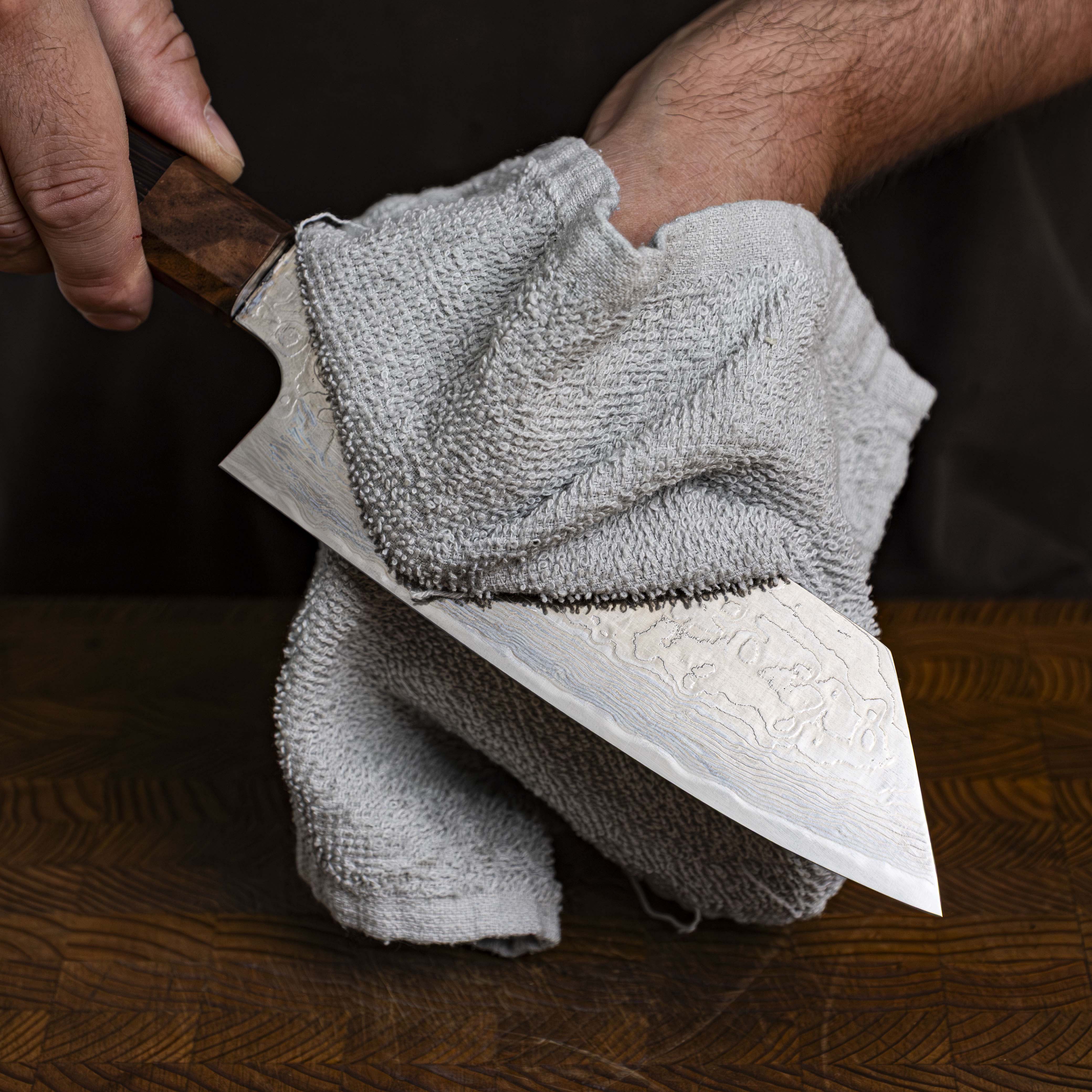
LOW MAINTENANCE
Stainless steel Japanese knives are made in a process called “Sanmai” or “Forge welding” where two softer layers of stainless steel are laminated around a harder core layer of stainless steel. All three of these layers are rust resistant and therefore are not susceptible to rust or discoloration. The softer outer layers of steel are used to make the knife more durable and flexible while the harder core layer is used to provide better edge retention to the blade.

Kenshiro Hatono is a young and very talented smith who opened his own business producing knives in the spring of 2024. He previously worked as an apprentice for 6 years under Katsuyasu Kamo of the Takefu Knife Village in Echizen City, Fukui Prefecture, Japan. He is able to work with a variety of steels producing many different finishes with excellent edge geometry. Though early in his career, he is already highly respected and expected to do great things.
